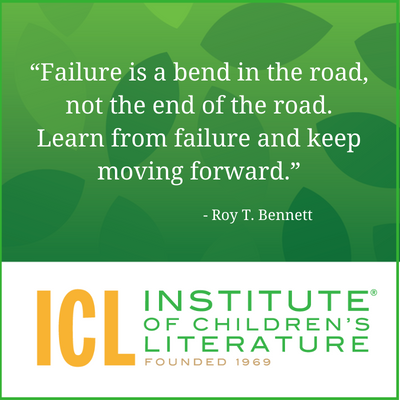1000 N. West Street #1200, Wilmington, DE 19801
© 2024 Direct Learning Systems, Inc. All rights reserved.

We’ve talked about why to enter contests and how important it is to follow directions and polish your entry before sending it in, but there is another important thing your entry must do in order to win. It needs to stand out. So how do you make a story stand out among entrants beyond simply writing strong, solid prose or poetry? Here are three judge-grabbing suggestions.
If you pay much attention to editors lauding the books they’ve recently acquired, you’ll almost always hear mention of the author’s amazing voice. This same element can make your contest entry stand out among all the others that are written well. So what exactly is voice?

The personality your work reflects, the voice, comes from word choice, sentence structure, use of figurative language, handling of imagery, and strength of dialogue. But for it to stand out, it helps if you give some real thought to what kind of “voice” you’re using for the piece.
Consider which kind of voice would do the best job of supporting everything else you’re doing in the story. A ghost story, for instance, might benefit from the dark and creepy voice that reflects the expected tone of the genre. But a ghost story for young kids might benefit from the optimistic, funny voice that contrasts with the expected tone of the genre and makes the story less threatening. But whatever voice your entry has, it’s going to be stronger if the voice is clear, consistent, and engaging.
If you spend much time reading submission guidelines, you’ll quickly see one word that appears nearly every single time. That word is “humor.” Humor is engaging. Humor grabs attention. And humor disarms. Think about the people you liked almost instantly upon meeting them. How many of them had a great sense of humor? When something makes us laugh, it’s really hard to dislike it, and really hard to ignore it.
Now, the reality is that pure comedy doesn’t get a lot of big book awards, but it can be very popular in smaller writing contests, because it makes an entry stand out. However, humor can take many forms, and not all of them are equally welcome. Mean-spirited humor will almost immediately kill your chances. Humor that wins contests isn’t hurtful.

It is built into human physiology that we are drawn to movement. If you’re calmly looking across an idyllic scene and you catch sight of movement in the corner of your eye, you’re going to turn to it immediately. It’s hard not to. And that holds true for writing as well.
The reader looks in the direction you signal, which can be both very helpful to you (for making the reader see what you want them to see) and very engaging. This is why good stories tend to include solid sensory engagement. They set a scene. They include action. They make us look and hear and touch. They engage our senses, based on our sense memory.
Now you can drown a reader in sensory detail because it’s too overwhelming, and that does you no good. Too much of a good thing is too much. But specific sensory detail, handled carefully, can make the reader believe in your scene and that will make your entry stand out.
So if your scene takes place in a school, ask yourself: what part of the school? If you decide it’s in the cafeteria (so you can have the characters chat with less adult intrusion), then consider having a character poke at a rubbery half-slice of peach on a plastic tray. We all did that as kids. What was it like? How did it move? What did it remind you of as it scooted around in its little slot on the tray, leaving behind a slime trail of syrup? Tiny moments made real will elevate your entry and grab the judge because they unfold shared memories.
You don’t need all three of these in your contest entry, but if the story lends itself to any or all of these, know that your work will stand out as a result. And when the judge is choosing between two equally well-written pieces, it’s the piece that feels unique that will win. Every time.
1000 N. West Street #1200, Wilmington, DE 19801
© 2024 Direct Learning Systems, Inc. All rights reserved.
1000 N. West Street #1200, Wilmington, DE 19801
© 2024 Direct Learning Systems, Inc. All rights reserved.
1000 N. West Street #1200, Wilmington, DE 19801
© 2024 Direct Learning Systems, Inc. All rights reserved.
1000 N. West Street #1200, Wilmington, DE 19801
© 2025 Writewell, LLC. All rights reserved.
1000 N. West Street #1200, Wilmington, DE 19801
©2025 Writewell, LLC. All rights reserved. Privacy Policy.
2 Comments